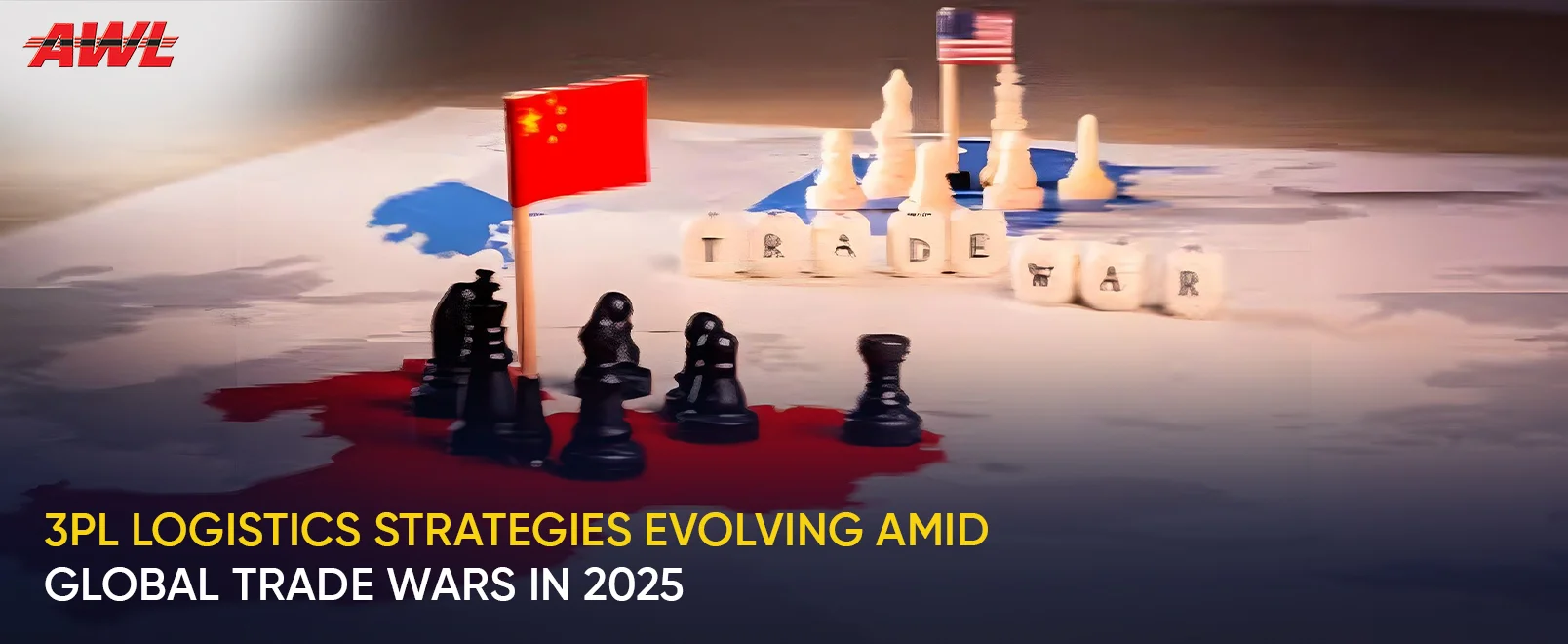
The world trade in 2025 is like walking on shifting sand. Nations are becoming more restrictive, switching tariffs overnight, and insisting on more rigid adherence. Companies that previously enjoyed stable supply chains are suffering disruptions on a regular basis. Containers sit longer at ports. Costs rise without warning. Delivery timelines stretch. In this atmosphere, logistics has become more than just moving goods. It is about designing a system that bends without breaking.
How Trade Wars Are Reshaping Supply Chains
The back-and-forth between nations has left a deep mark on supply chains. Tariffs are only one part of the puzzle. New customs checks, sudden documentation needs, and retaliatory policies pile up to slow down trade. Shipments that once cleared easily can now get stuck for weeks.
Companies are not waiting for the situation to improve. Many have begun splitting their inventory across regions. Instead of one big warehouse feeding all markets, they set up smaller hubs closer to demand centers. This way, even if one route is blocked, other routes keep products flowing.
Technology as a Shield Against Disruption
Technology is proving to be the shield that businesses lean on. Real-time shipment tracking makes delays visible right away. Predictive tools alert managers when a port strike or new regulation might affect delivery. Automated warehouses reduce the time it takes to move products from storage to trucks.
Artificial intelligence adds foresight. Reading patterns in trade data warns companies of upcoming risks. Knowing early means businesses can reroute shipments or adjust sourcing plans before disruptions hit hard.
Partnerships That Make a Difference
No company wants to fight trade wars alone. Building strong partnerships has become a survival tactic. A dependable 3PL logistics partner gives access to global networks, customs know-how, and the flexibility to change routes quickly. Businesses that rely only on their internal teams often struggle to adapt fast enough.
Working with a capable 3PL service provider brings more than efficiency. It gives companies peace of mind. From warehousing to delivery, these partners manage complex tasks that free businesses to focus on growth.
The Rise of Regional Hubs
Regional hubs are no longer an experiment. They are becoming the backbone of modern supply chains. Storing goods closer to customers means companies can deliver faster and at lower risk. If one trade lane shuts down, inventory in another hub keeps business moving.
This setup is not only about speed. It also supports customer expectations. Shoppers now want quick delivery regardless of what is happening in the global trade arena. Regional hubs make that possible.
Why 3PL Logistics Is Now a Growth Driver
Logistics is no longer a silent background process. It is a competitive weapon. 3PL logistics gives businesses a way to cut costs while handling uncertainty. When tariffs rise and shipping fees increase, saving money on packaging, storage, and transport routes becomes essential.
Even small adjustments add up. A partner who suggests a better shipping lane or smarter packing solution can help protect profit margins. This is why many companies now see logistics not as an expense but as an investment in resilience.
Full-Scale Solutions Bring Real Value
There is a clear difference between providers who only transport goods and a full-service 3PL logistics company. The latter integrates warehousing, customs, distribution, and tech-driven planning. Such partners do more than react to crises. They prepare systems that adapt in real time.
When a port delay happens, backup modes like rail or air are already ready. If tariffs increase in one country, sourcing shifts to another. Having this kind of support makes businesses far more confident in their supply chains.
India’s Growing Role in the Global Logistics Scene
As global firms search for reliable alternatives, India is becoming a strong player. Infrastructure development, skilled manpower, and a central location make it attractive. Leading 3PL companies in India are now handling cross-border flows in addition to domestic operations.
This rise benefits Indian businesses too. Smaller firms gain access to world-class systems through partnerships. They do not need to spend heavily on their own logistics setups but still enjoy global reach.
How AWL India Supports Businesses in Turbulent Times
Among the leaders in this transformation is AWL India. The company has built a reputation for resilience and adaptability. It blends years of logistics experience with modern technology to help clients navigate uncertain trade environments.
Digital tools form a strong part of its services. Clients track their shipments in real time, cutting the stress of not knowing where goods are. Networks are designed with flexibility so that no single route or market becomes a weak point.
Above all, AWL India focuses on keeping supply chains reliable. In times when customers expect quick delivery despite trade disputes, that reliability is priceless. Businesses working with the company know that promises to customers will be kept.
Building Green and Agile Supply Chains
Global trade disputes are not the only challenge. Sustainability is becoming a key expectation. Companies want to reduce emissions and waste while still keeping costs under control. Logistics partners are guiding them toward greener fleets, energy-efficient warehousing, and smarter packaging.
Balancing efficiency with sustainability is not easy, but it is essential. Consumers prefer brands that care about the environment, and regulators are also tightening rules. The companies that move early will enjoy long-term benefits.
Looking Toward the Future
Trade wars are unlikely to disappear soon. Businesses cannot wait for stability. They must build supply chains that thrive in unstable conditions. Old approaches will not be enough. Success will come from flexible systems, smart use of technology, and strong partnerships.
3PL logistics is at the centre of this shift. Companies that embrace it are finding ways to cut risks, reduce costs, and maintain delivery speed even in uncertain times. With the right strategies and partners, challenges can turn into opportunities.

David Williams
Team Leader
